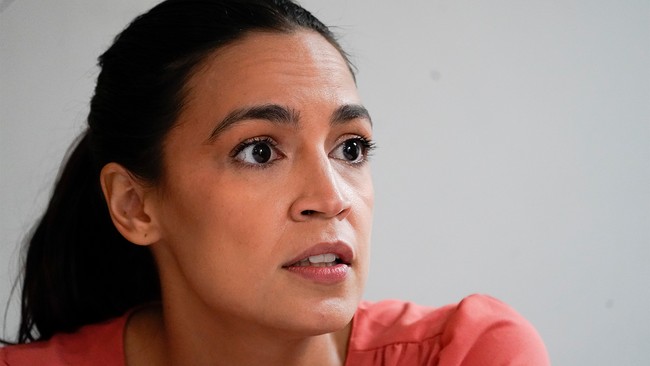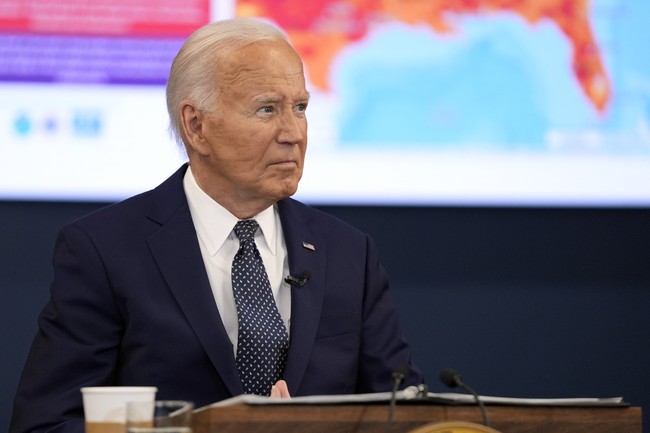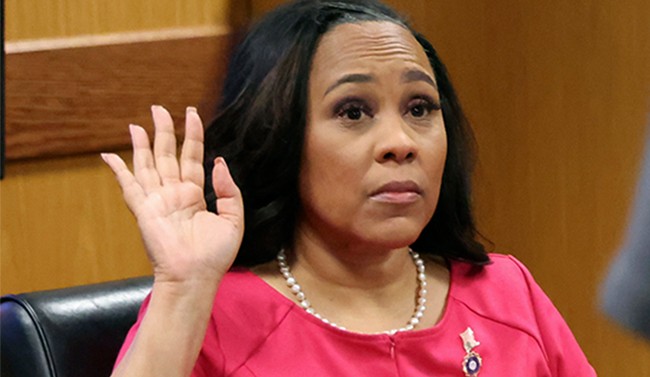Democratic Leadership Battle Unveiled
Explore the fierce competition and behind-the-scenes political dynamics that influenced the selection of the House Oversight Committee's top Democrat, a decision with far-reaching implications.
Published December 18, 2024 - 00:12am

Image recovered from redstate.com
In a highly anticipated and closely watched election within the Democratic Party, Rep. Gerry Connolly from Virginia emerged victorious over progressive icon Alexandria Ocasio-Cortez (AOC). His success marks a significant moment for the House Oversight and Accountability Committee's leadership dynamics. The contest unfolded against the backdrop of the Democratic Party's strategic maneuvers as it grapples with its internal divisions and future directions.
The leadership contest concluded in a secretive and decisive vote where Connolly, a seasoned member of the party with nine terms under his belt, won the confidence of his peers over the relatively younger AOC. Connolly's victory was supported by a 131-84 vote margin in a setting characterized by intense lobbying and strategic alliances. Key influential figures, including former House Speaker Nancy Pelosi, played substantial roles in rallying support for him, emphasizing experience and continuity in the face of changing political tides.
This win, however, should not be viewed solely as a triumph of experience over youth. It illuminates the broader ideological conflicts within the Democratic Party. AOC, an emblematic figure within the progressive wing, represents a faction advocating for sweeping reforms and generational leadership changes. Her substantial following on social media and her role as a catalyst for progressive causes underline the conflict between entrenched party veterans and emerging voices seeking a shift in direction.
Connolly's impending leadership role in overseeing critical investigations coincides with allegations of his, previously undisclosed, involvement in potential conflicts of interest. Reports have surfaced suggesting Connolly violated the STOCK Act by not disclosing stock transactions connected to companies involved with government contracts. Although attributing the oversight to a communication lapse with his financial advisors, the revelation raises questions about ethical standards among congressional leaders.
The contest also underscored the institutional power structures within Congress where seniority often plays a crucial role. Despite AOC's robust communication skills and broad appeal, particularly among younger Democrats, the entrenched systems and loyalties ultimately favored Connolly. Critics argue that the seniority-driven approach might stifle innovative strategies and diminish the party's appeal to dynamically evolving voter bases.
In the days leading up to the vote, both Connolly and AOC campaigned vigorously, with AOC leveraging her widespread support base while seeking to convey her vision for the party's direction, focusing on her proven track record as an effective communicator. Conversely, Connolly highlighted his legislative experience and capability to navigate intricate political terrains. Observers have noted the broader implications of AOC's loss, viewing it as a setback for the progressive wing striving to reshape party policies and its congressional leadership.
Comments from Democratic colleagues paint a complex picture. While some express disappointment over the sidelining of a progressive leader like AOC, others emphasize the importance of seasoned leadership in overseeing critical committee roles, particularly as they anticipate the challenges of holding the Republican administration accountable.
In this charged environment, the decision reverberates beyond the immediate implications for the House Oversight Committee. It signals a potential struggle ahead within the Democratic Party over its strategic direction and policy priorities, a struggle that will likely continue to unfold as new voices seek to redefine the party's narrative against long-standing institutional practices.







